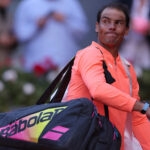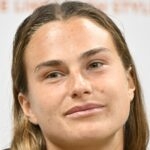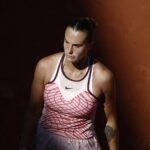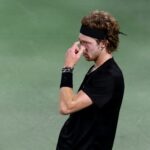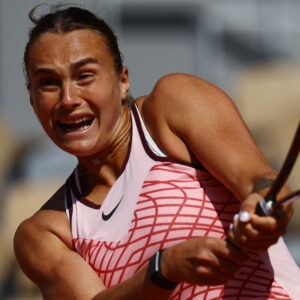The day Sabalenka did what Ukrainians had been expecting of her
Aryna Sabalenka surprised everyone when she answered questions from journalists at the French Open, without evading analysis of her apparent support for Alexander Lukashenko’s pro-war regime. She suggested that the press conference went some way towards easing her conscience
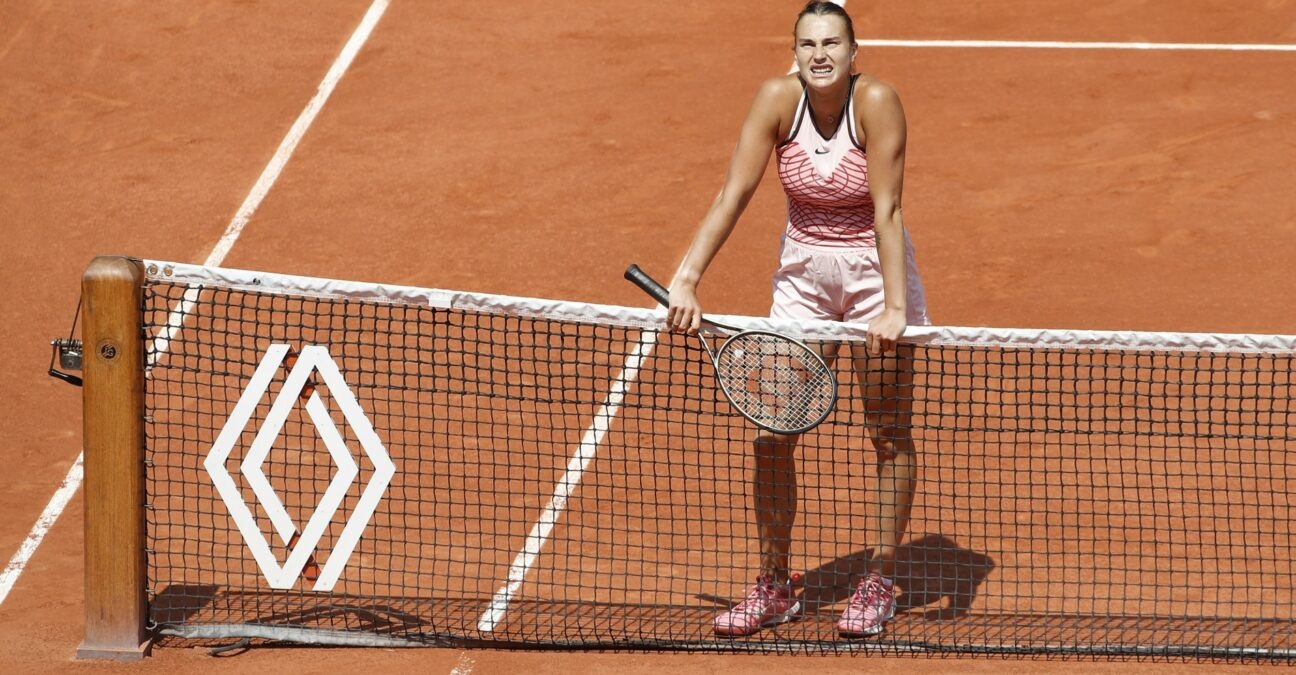 Aryna Sabalenka (Michael Baucher/Panoramic)
Aryna Sabalenka (Michael Baucher/Panoramic)
In the normal order of things, a 6-4, 6-4 win for Aryna Sabalenka against Elina Svitolina on a quiet Tuesday at Roland-Garros would never have resulted in such a packed press conference.
“Aryna Sabalenka is on her way to PC1.”
This phrase – PC1 being the large press conference room under the Chatrier – was the least expected of the day. Since the second round and a tense a tense press conference marked by heated exchanges with a Ukrainian journalist, the world No 2 had deserted this obligatory exercise, delivering only a few authorised reactions, explaining the neglect of the media would be better “for her mental health”, she said.
The second surprise was the absence of a pre-conference briefing from the WTA’s press officer along the lines of “Aryna Sabalenka will only answer sporting questions and will not be able to answer questions with a political dimension”: such a warning never emerged from her mouth. So the message was latent, but it was clear: Sabalenka had things to say, and she would answer the questions everyone was asking.
As she has reminded us several times in the past, and again on Tuesday, Sabalenka is a professional tennis player with goals, who has dedicated her life to achieving them and who has nothing to do with politics and world affairs. But 15 months of tension on the circuit have reminded her of this reality: she is also Belarusian, a citizen of a country that is politically and militarily allied with Russia in the invasion of Ukraine, and many of her
colleagues believe that the price to pay for this freedom to pursue her ambitions is to disassociate herself from the actions by her government in her name.
Sabalenka was not prepared to do this for several months – but she did after her victory over Svitolina. The Ukrainian, as expected, explicitly avoided her in a handshake, to the apparent astonishment of Sabalenka, who had positioned herself to receive it.
“It just was an instinct like I always do after all my matches,” she explained. Later, she would criticise the boos directed at Svitolina for refusing to shake hands: “I think she didn’t deserve all this boos. I think, I mean, I’m giving such a big respect to her what she’s doing after giving birth (in October 2022). It’s impressive and I’m really impressed by what she’s doing. I give big respect to her.”
‘The internet never forgets’
Significantly Sabalenka was ready to end her image as a political supporter of her country’s president since 1994, Alexander Lukashenko, Vladimir Putin’s ally in the region. “The internet never forgets. We can find lots of photos of you and Alexander Lukashenko,” remarked a Polish journalist in the second question, in an apparent break with Sabalenka’s recent desire not to mix sport and politics – before, this bothered her.
“We played a lot of Fed Cups in Belarus,” she replied. “He was in our matches taking pictures with us after the match. Nothing bad was happening that time in Belarus or in Ukraine or in Russia.”
But in this response, Sabalenka avoided mentioning a reception in November 2018 to congratulate her on her season, and another on December 31, 2020 in Minsk, in the midst of pro-democratic protests, in keeping with the regime’s long-established practice of capitalising on the successes of its athletes, just as it did with Victoria Azarenka in 2012 and 2013.
“I said it many times already, I’m not supporting war. I don’t want my country to be involved in any conflict. I said it many times, and you know where I stand, you know. You have my position. You have my answer. I answered it many times. I’m not supporting the war.”
She added: “And the thing that I don’t want sport to be involved in politics, because I’m just a tennis player, 25-years-old tennis player. And if I would like to be political I wouldn’t be here. I don’t want to be involved in any politics. I just want to be a tennis player.”
Asked about her support for Lukashenko, she responded: “Like it’s a tough question. I mean, I don’t support war, meaning I don’t support Lukashenko right now.”
Sabalenka: I don’t regret my decisions
Sabalenka also managed to put into words her state of mind between last Thursday’s decision not to attend press conferences to avoid exposing herself to such questions, and her return to the press conference room just five days before a possible Roland-Garros final.
“I always really respect press conference. I’m always open in my answers. I really felt bad not coming here. I couldn’t sleep. Like all those bad feelings was in my head, I couldn’t fall asleep. I felt really bad not coming here. I really respect all of you guys. Thank you so much for coming here, for being interested in me.”
She went on: “I don’t regret the decisions. I felt really disrespected, and I felt really bad. I mean, Grand Slam, it’s enough pressure to handle, and I just tried to focus on myself, on my game.
“I really hope that you guys will understand me, my feelings. You know that I really respect all of you, and I always open. You can ask whatever you want. You will get all the information.
“But in the last press conference, I felt like my press conference became a political TV show, and I’m not expert in politics. I’m just a tennis player.
“Yeah, I just need to step back and just bring focus on my tennis and on my game. Yeah, and I feel good that I did it and I feel sorry for you guys that you didn’t have chance to chat with me. But I’m here today, and I am ready to give answers for every question you have.”
By assuming this position, Sabalenka brings herself closer to Andrey Rublev’s position, the most vocal Russian or Belarusian player so far in his public statements, repeatedly calling for peace and expressing his horror for the crimes committed. But still no player has had the courage to explicitly disassociate themselves from their president-dictator.
People in this post
More tennis news
Tennis Majors launches new WhatsApp channel: Join us now!

Madrid Masters: Carballes Baena reaches second round
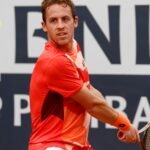
“In Australia, I pushed too hard”: Nadal more cautious about his fitness
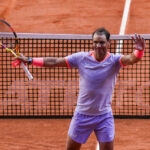
“I was really, really nervous, I must improve the mental part” – Darwin Blanch on Nadal defeat
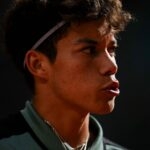
“I learnt nothing about my physical state today” – Nadal still undecided on Roland-Garros
